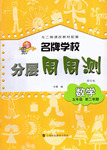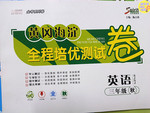题目内容
My uncle didn’t regret _______ so much time on the novel.
A. spend B. to spend C. spent D. spending
练习册系列答案
 名牌学校分层周周测系列答案
名牌学校分层周周测系列答案 黄冈海淀全程培优测试卷系列答案
黄冈海淀全程培优测试卷系列答案
相关题目
题目内容
My uncle didn’t regret _______ so much time on the novel.
A. spend B. to spend C. spent D. spending
 名牌学校分层周周测系列答案
名牌学校分层周周测系列答案 黄冈海淀全程培优测试卷系列答案
黄冈海淀全程培优测试卷系列答案